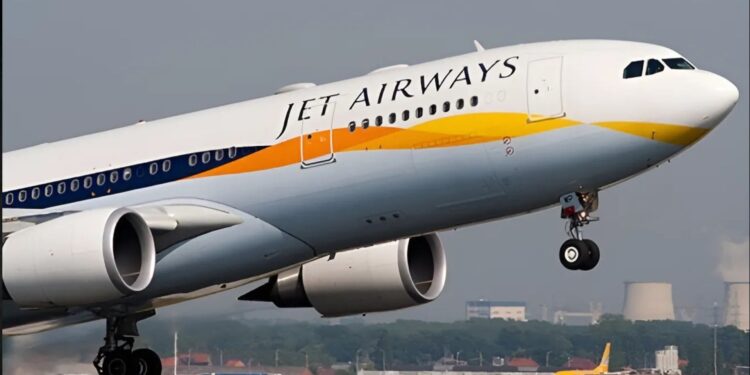The Supreme Court of India will deliver a long-awaited verdict on Thursday, November 7, in the five-year dispute over the ownership of Jet Airways between the Jalan Kalrock Consortium (JKC) and a consortium of creditors led by the State Bank of India (SBI). The judgment, reserved on October 16, will be issued by a bench led by Chief Justice of India DY Chandrachud, just days before his retirement on November 10.
JKC, comprised of UAE-based entrepreneur Murari Lal Jalan and UK-based Kalrock Capital, has claimed Jet Airways ownership per a resolution plan approved by the National Company Law Tribunal (NCLT) in 2021. However, the creditors, citing unresolved financial commitments, have called on the Supreme Court to exercise its authority under Article 142 of the Constitution, seeking liquidation as a last resort. They argue the plan has become unviable due to JKC’s inability to fulfill critical financial obligations.
The Legal Journey: A Five-Year Saga
The Jet Airways insolvency saga spans five years, involving legal battles across the National Company Law Tribunal (NCLT), the National Company Law Appellate Tribunal (NCLAT), and the Supreme Court. This article traces the case’s journey through its critical phases, shedding light on significant decisions and how the ownership issue reached the Supreme Court multiple times.
NCLT Proceedings: The Road to Insolvency
In April 2019, Jet Airways grounded its operations amid severe financial challenges. State Bank of India, as the primary lender, initiated insolvency proceedings at the NCLT’s Mumbai Bench, resulting in Jet Airways entering the corporate insolvency resolution process in June 2019.
After extensive bidding, the Jalan Kalrock Consortium emerged in 2021 as the successful bidder to revive Jet Airways. The NCLT approved their resolution plan, conditional upon acquiring an air operator’s certificate and fulfilling specific financial commitments. JKC committed to paying over ₹8,000 crore to lenders, intending to meet the obligations through future revenues from Jet Airways’ operations. Despite the NCLT’s approval, disagreements surfaced between JKC and the creditors over fulfilling these preconditions, stalling the ownership transfer.
In January 2023, NCLT ruled in favor of JKC, allowing the transfer of ownership. The lenders, however, challenged this decision at the NCLAT, arguing that JKC had failed to meet critical financial conditions.
NCLAT Proceedings: Escalating the Dispute
In February 2023, the lenders formally appealed the NCLT’s decision to transfer ownership. The NCLAT initially declined to halt the ownership transfer and later granted JKC over 100 additional days to pay ₹350 crore to the creditors. However, by August 2023, the creditors indicated a potential withdrawal of the appeal if JKC paid the sum by September 30.
In response, JKC proposed a partial payment plan: ₹200 crore in cash and adjusting the remaining ₹150 crore against existing bank guarantees. The lenders opposed this arrangement, arguing that the bank guarantees were secured for separate obligations. Despite these objections, the NCLAT approved JKC’s adjustment proposal, prompting the lenders to take the matter to the Supreme Court.
In January 2024, the Supreme Court overturned the NCLAT’s order allowing JKC to adjust ₹150 crore from bank guarantees. The Court also directed JKC to deposit ₹50 crore into a designated bank account as a commitment to fund Jet Airways’ revival. Additionally, the Supreme Court instructed the NCLAT to resolve the creditors’ appeal by March 31, 2024.
In March 2024, the NCLAT delivered a final ruling, endorsing the ownership transfer to JKC, which led the lenders to approach the Supreme Court for relief again.
Supreme Court Proceedings: The Final Frontier
The Supreme Court reviewed the case across multiple sessions, examining creditors’ appeals regarding delayed payments, disputed adjustments, and overall fulfillment of JKC’s obligations. The creditors emphasized that, despite JKC’s commitment to infuse substantial capital, the consortium struggled to provide even ₹350 crore. Consequently, they argued that liquidating Jet Airways was now the only feasible path, given the complexities and delays hindering the revival plan. JKC countered by stating that delays from the lenders were obstructing its efforts to restart the airline, claiming that no substantial steps had been taken to transfer ownership formally.
In its final hearing on October 16, Senior Advocate Gopal Sankaranarayanan, representing JKC, defended the NCLAT’s judgment. He argued that the tribunal had meticulously addressed each issue, leaving no substantial legal questions for the Supreme Court to resolve. Additionally, he highlighted that SBI’s earlier decisions had complicated the lenders’ current financial situation, noting that large loans granted to Jet Airways’ former management had contributed to the financial strain.
Sankaranarayanan stated, “I am not the bad guy; I am trying to get the company back in the air,” underscoring JKC’s commitment to Jet Airways’ revival despite facing numerous legal challenges. He further contended that the prolonged litigation had led to mounting airport dues, complicating JKC’s position.
Responding to these arguments, Additional Solicitor General N Venkataraman, representing the lenders, argued that JKC showed limited commitment to implementing the revival plan. He noted that the creditors, comprising over 30 banks, faced escalating financial burdens due to airport dues exceeding ₹1,100 crore. Venkataraman urged the Supreme Court to use Article 142 to authorize Jet Airways’ liquidation, arguing that any further delay would be financially detrimental to the creditors.
He clarified, however, that the government had no intent to bring down the airline, emphasizing that media reports suggesting otherwise were misleading. Instead, he argued, the government was compelled by necessity.
The ASG explained that the creditors were incurring monthly expenses exceeding ₹20 crore to keep the case afloat, with a cumulative expenditure of over ₹300 crore.
The Broader Impact on Indian Aviation
The Jet Airways case, nearing its conclusion, is pivotal for India’s aviation industry. With Go First’s liquidation plea scheduled for November 8, the outcome of these hearings will likely resonate across the sector, setting a precedent for airline insolvency and revival processes in India.
As the Supreme Court prepares to deliver its verdict, the ruling will mark a significant chapter in Jet Airways’ journey, shaping the airline’s future and broader expectations for handling complex corporate disputes in India’s aviation sector.

















